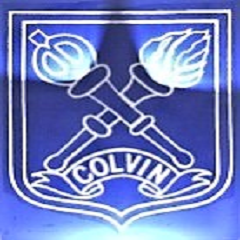
Gilbert Colvin Primary School
Geography
Intent
Our curriculum aims to inspire pupils to become curious and explorative thinkers with a diverse knowledge of the world; in other words, to think like a geographer. We want pupils to develop the confidence to question and observe places, measure and record necessary data in various ways, and analyse and present their findings. Through our progressive scheme of work, we aim to build an awareness of how geography shapes our lives at multiple scales and over time. We hope to encourage pupils to become resourceful, active citizens who will have the skills to contribute to and improve the world around them.
Our geography curriculum encourages:
- A strong focus on developing both geographical skills and knowledge.
- Critical thinking, with the ability to ask perceptive questions and explain and analyse evidence.
- The development of fieldwork skills across each year group.
- A deep interest and knowledge of pupils' locality and how it differs from other areas of the world.
- A growing understanding of geographical concepts, terms and vocabulary.
Implementation
Gilbert Colvin Primary School follows Kapow Primary's Geography scheme of work.
The National Curriculum organises the Geography attainment targets under four subheadings or strands:
- Locational knowledge
- Place knowledge
- Human and physical geography
- Geographical skills and fieldwork
Our geography curriculum has a clear progression of skills and knowledge within these four strands across each year group which are developed to ensure that attainment targets are securely met by the end of each key stage. Geographical key concepts are woven across all units rather than being taught discretely.
The Kapow scheme is a spiral curriculum, with essential knowledge and skills revisited with increasing complexity, allowing pupils to revise and build on their previous learning. Locational knowledge, in particular, will be reviewed in each unit to consolidate children's understanding of key concepts, such as scale and place, in geography. Cross-curricular links are included throughout each unit, allowing children to make connections and apply their geography skills to other areas of learning. Each unit contains elements of geographical skills and fieldwork to ensure that fieldwork skills are practised as often as possible.
Impact
An enquiry-based approach to learning will allow teachers to assess children against the National Curriculum expectations for geography. The impact of the geography scheme of work can be constantly monitored through both formative and summative assessment opportunities.
Each unit of work has a unit quiz and knowledge catcher, which teachers use at the start or end of the unit to assess children's understanding.
Class teachers ensure that the children in their class have covered the relevant knowledge and skills using the subject-specific progression map. Teachers track and evidence progress against objectives at the end of each unit. Subject leaders carry out 'deep dive' subject monitoring which includes planning and book scrutiny, learning walk and pupil voice.
By the time children leave Gilbert Colvin, they will be able to:
- Compare and contrast human and physical features to describe and understand similarities and differences between various places in the UK, Europe and the Americas.
- Name, locate and understand where and why the physical elements of our world are located and how they interact, including processes over time relating to climate, biomes, natural disasters and the water cycle.
- Understand how humans use the land for economic and trading purposes, including how the distribution of natural resources has shaped this.
- Develop an appreciation for how humans are impacted by and have evolved around the physical geography surrounding them and how humans have had an impact on the environment, both positive and negative.
- Identify and understand how various elements of our globe create positioning, including latitude, longitude, the hemispheres, the tropics and how time zones work, including night and day.
- Present and answer their own geographical enquiries using planned and specifically chosen methodologies, collected data and digital technologies.
- Meet the 'Understanding the World' Early Learning Goals at the end of EYFS, and the end of key stage expectations outlined in the National Curriculum for Geography by the end of Year 2 and Year 6.